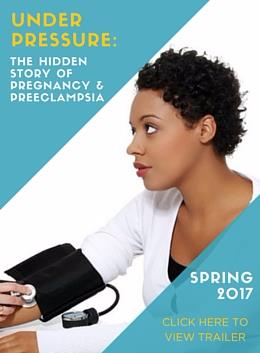It has long been thought that postpartum depression is caused by the hormonal fluctuations that accompany pregnancy and childbirth. The dramatic drop in estrogen levels that occurs in the days following birth does trigger elevation of an enzyme that has been associated with mood changes and is almost certainly associated with the short-lived baby blues. But it has not been conclusively determined that hormonal fluctuations are responsible for postpartum depression, which may not appear until weeks or even months after giving birth. “While we haven’t pinpointed a precise physiological basis for postpartum depression,” says Dr. Gaither, “we do know which factors increase a woman’s risk.”
Risk factors for postpartum depression
Women at highest risk are those who have had a prior episode of postpartum depression or who have a history of depression or anxiety disorders, particularly if they were depressed during the pregnancy. Other risk factors include:
- High levels of stress as a result of any number of factors: mixed feelings about the pregnancy, lack of emotional support from partner, family and friends, or work or financial difficulties.
- Family history of depression or mental illness.
- A history of drug or alcohol abuse.
- A difficult pregnancy or delivery or issues with the baby’s health.
- Multiple birth.
Symptoms of postpartum depression
“Fleeting instances of one or more of these symptoms are not unusual,” says Dr. Gaither. “But experiencing several symptoms almost every day for a period of two weeks may be indicative of postpartum depression.”
- Overwhelming sadness, hopelessness.
- Frequent crying
- Lack of interest or inability to find pleasure in previously enjoyable activities.
- Extreme fatigue; difficulty sleeping even when the baby is asleep.
- Lack of appetite or overeating.
- Restlessness, irritability, anger.
- Feeling unable to bond with or care for the baby.
“Left untreated, postpartum depression can last for months or even years,” says Dr. Gaither. “It will affect the health of the mother, the physical and emotional development of the baby, and the well-being of the entire family. Troublesome symptoms such as delusions or hallucinations should be promptly reported to the woman’s obstetrician or primary care physician as this may signal the development of postpartum psychosis.” Postpartum depression is treated with counseling, medication, or both, while postpartum psychosis treatment may entail hospitalization and possibly electroconvulsive therapy (ECT). It’s important to recognize there exists a spectrum; postpartum blues, postpartum depression, and postpartum psychosis, and vigilant and expedited medical intervention is imperative for the sake of the mother and baby. Most anti-depressants are considered safe for breastfeeding mothers but it’s important to make let your doctor know if you’re nursing.
“In addition to getting professional help, self-care will help you feel better as you’re coping with postpartum depression,” says Dr. Gaither. “Try to eat and sleep well, go for a walk, indulge in a relaxing bath. Most important, don’t expect too much of yourself – let the housework wait, have dinner delivered, take things one day at a time, and accept help from family and friends. Postpartum depression can be overcome so women can enjoy the rewards of motherhood.”
Bio: Kecia Gaither, MD is a double board-certified physician in OB/GYN and Maternal Fetal Medicine and holds a Masters’ degree in Public Health. Dr. Gaither has particular expertise in caring for women with diabetes, HIV and obesity in pregnancy. www.keciagaither.com






